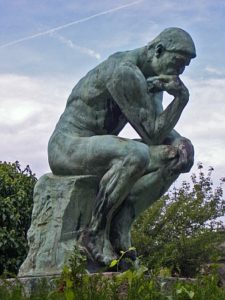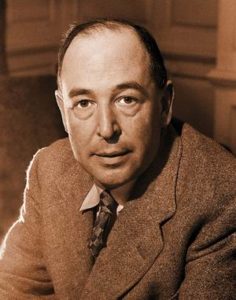 I teach at a Christian university. A concern I’ve expressed before in this blog is that sometimes Christian academics have a tendency to think they are lesser scholars than those in the more prestigious centers of higher education. Then they make the mistake of trying to become respected by secular academia by minimizing their faith publicly.
I teach at a Christian university. A concern I’ve expressed before in this blog is that sometimes Christian academics have a tendency to think they are lesser scholars than those in the more prestigious centers of higher education. Then they make the mistake of trying to become respected by secular academia by minimizing their faith publicly.
I’m not saying that’s the norm for Christian academics, but it is a temptation for some. There sometimes is a haughtiness emanating from the confines of Ivy League and other “top” schools that tells us we don’t really match up.
However, God disagrees. We’re told in Proverbs, “The fear of the Lord is the beginning of knowledge” and “The fear of the Lord is the beginning of wisdom.” That last verse goes on to say, “And the knowledge of the Holy One is understanding.”
When we jettison that first step—reverence for God—we set out on a path that leads to foolishness, not genuine knowledge, understanding, and wisdom.
 It’s as C. S. Lewis noted in Mere Christianity:
It’s as C. S. Lewis noted in Mere Christianity:
There is a difficulty about disagreeing with God. He is the source from which all your reasoning power comes: you could not be right and He wrong any more than a stream can rise higher than its own source.
When you are arguing against Him you are arguing against the very power that makes you able to argue at all: it is like cutting off the branch you are sitting on.
All the talk in circles of higher education of having an open mind sounds nice. Sometimes, those of us who teach at a university that has a basic statement of beliefs are considered close-minded. Yet as Lewis reminds us in his The Abolition of Man,
An open mind, in questions that are not ultimate, is useful. But an open mind about ultimate foundations either of Theoretical or Practical Reason is idiocy. If a man’s mind is open on these things, let his mouth at least be shut.
 I’m reminded also of an incident related by Whittaker Chambers in his autobiography, Witness. As a child, he once said something to his mother about God creating the world. His mother, decidedly nonreligious, told him that he had to think for himself, to have an open mind. He was not to accept other people’s opinions, she declared. Then she followed that with this statement: “The world was formed by gases cooling in space.”
I’m reminded also of an incident related by Whittaker Chambers in his autobiography, Witness. As a child, he once said something to his mother about God creating the world. His mother, decidedly nonreligious, told him that he had to think for himself, to have an open mind. He was not to accept other people’s opinions, she declared. Then she followed that with this statement: “The world was formed by gases cooling in space.”
Chambers continued,
I thought about this many times. But it was not the gaseous theory of creation that impressed me. . . . What impressed me was that it was an opinion, too, since other people believed something else. Then, why had my mother told me what to think? Clearly, if the open mind was open . . . truth was simply a question of which opening you preferred.
In effect, the open mind was always closed at one end.
I have no problem saying I begin my understanding of history (which is what I teach) with the knowledge of God. After all, history came into being by His creation. Why would I ever omit Him from an analysis of history?
My mind is open when it comes to the facts of history and whether I need to change my perspective on particular events. My mind is blessedly closed, though, on matters of ultimate significance. Neither do I suffer from feelings of inferiority for saying that. Staying faithful to God’s truth leads to proper understanding and wisdom.
